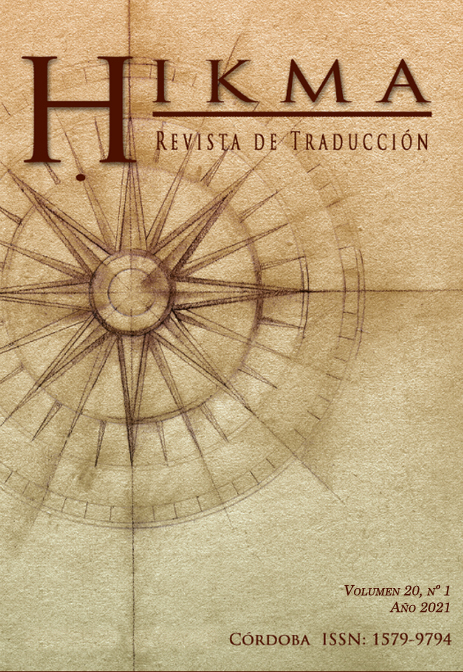A Pioneer Translator of Royal Lineage and German Descent: Sister Constanza de Castilla (XV century)
Main Article Content
Abstract
The purpose of this article is to shed light on Sister Constanza de Castilla (XV century), one of first translators of the Spanish language. This Dominican nun is an example of how women in the era could access a higher level of culture by beginning as writers and translators within the monastic life and in the heart of the aristocracy. Sister Constanza de Castilla, of Royal lineage and German descent, was an influential and powerful prioress that, at the heart of the convent, not only composed prayers and works of devotion but also compiled many texts. Above all else, this study highlights her role as a translator. In this investigation we analyze her Book of Devotion, a work that is conserved in the National Library of Madrid and that was utilized for prayer and song at the services for the nuns in her convent. This religious text combines teachings and doctrine in its book of prayer, the two axes of charisma of the Order of Preachers, the religious order which it belongs to. In a life dedicated to prayer within the cloister, the translations, an essential part of the manuscript, became a central aspect to the daily aspect of the community.
Keywords: Monastery translations, Religious translator, Dominican translator, Dominican Order, Preachers Order, Sister Constanza de Castilla.
Downloads
Article Details

This work is licensed under a Creative Commons Attribution-NonCommercial-ShareAlike 4.0 International License.
Authors who publish with this journal agree to the following terms:
1. Authors retain copyright and grant the journal right of first publication with the work simultaneously licensed under a Creative Commons Attribution License that allows others to share the work with an acknowledgement of the work's authorship and initial publication in this journal.
2. Authors are able to enter into separate, additional contractual arrangements for the non-exclusive distribution of the journal's published version of the work (e.g., post it to an institutional repository or publish it in a book), with an acknowledgement of its initial publication in this journal.
3. Authors are permitted and encouraged to post their work online (e.g., in institutional repositories or on their website) prior to and during the submission process, as it can lead to productive exchanges, as well as earlier and greater citation of published work (See The Effect of Open Access).

